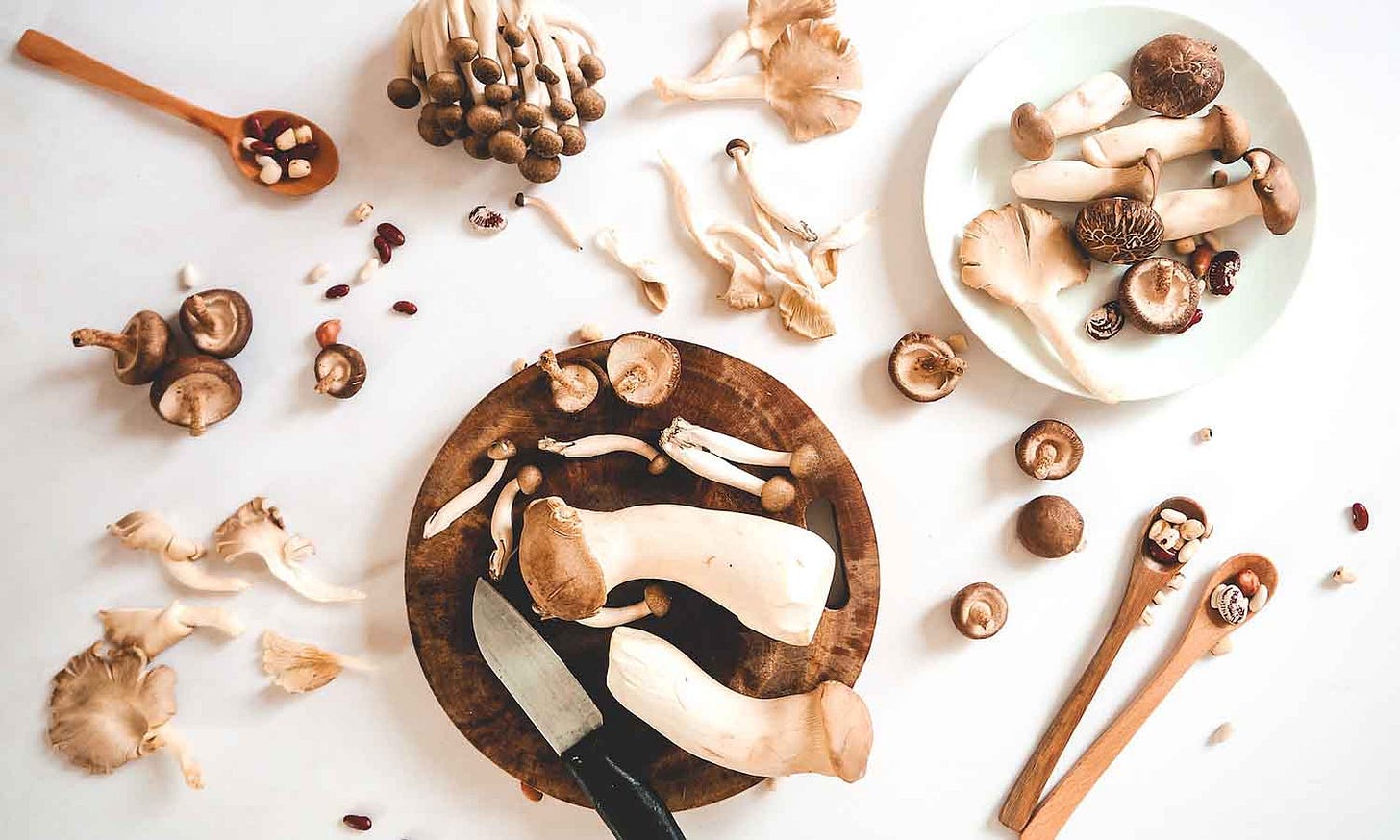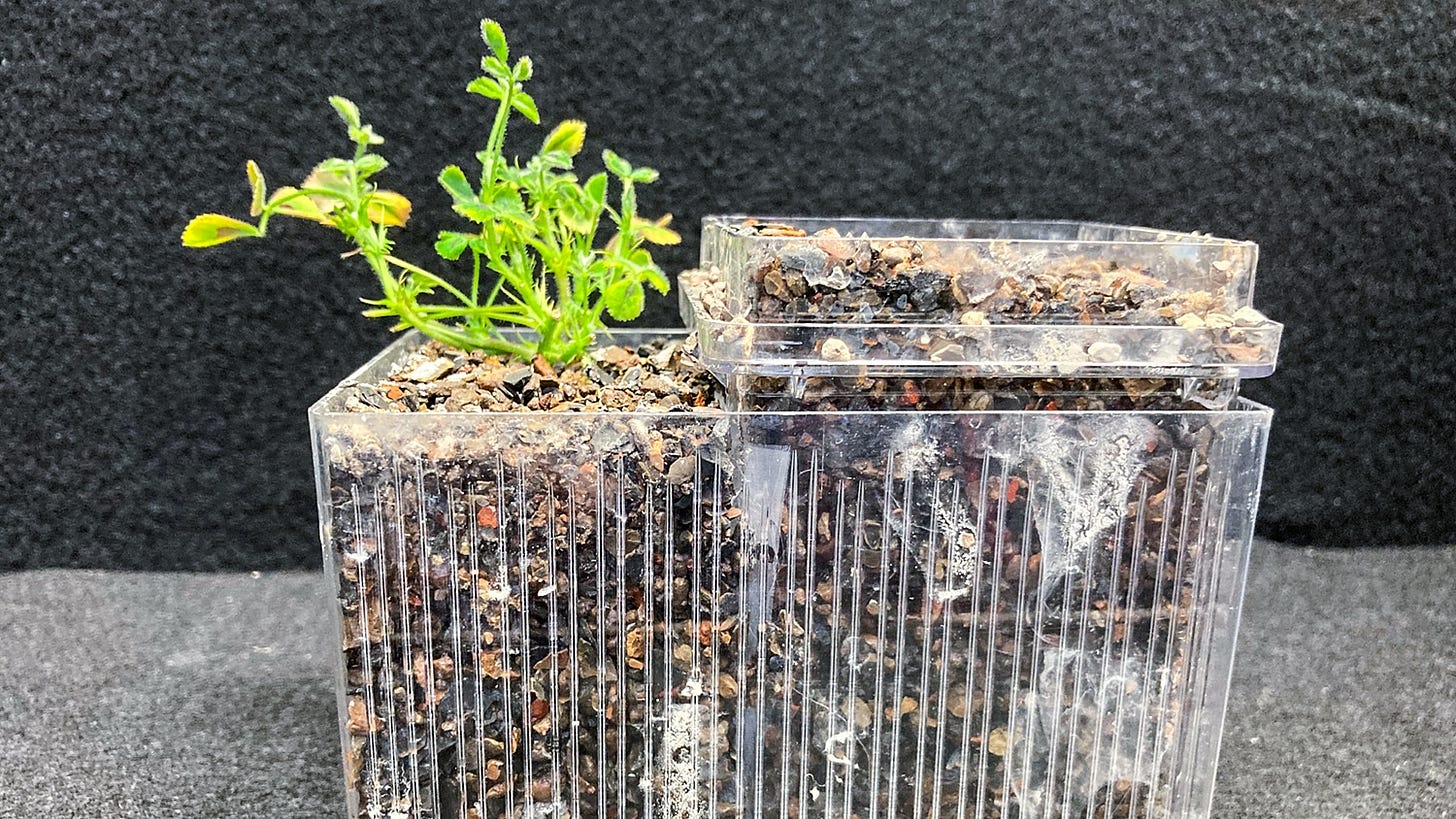Fungi and Farming — The unique symbiotic relationship between the two
Fungi Friday’s - January 13th, 2023 - Issue #64
Henry Fungi Friday fam,
Welcome to the first release of Fungi Friday’s of 2023. Did you miss me? Yes, we decided to take week one of the year off, as I’ve been enjoying my travels and opted for a one week break. Now I’m feeling refreshed and ready to attack 2023. Have a feeling it’s going to be a big one for Iowa Fungi and the fungi community in general, as this trend of mushrooms taking over the world only accelerates. And the good news about taking a week off, we have plenty of fun stories for you this week (and even a few we’re opting to hold onto until next week) Let’s get into them!
Does Mushroom Coffee Have More Benefits Than a Regular Cup of Joe?
By now you’ve probably heard about mushroom coffee, as it’s been gaining popularity both within the mushroom community, as well as with coffee lovers over the past few years, and for good reason! Mushrooms have incredible healing potential, from their physical and mental therapeutic benefits to the role they play in the earth's ecosystems. Many functional mushrooms are considered adaptogens, which are herbs and fungi that help your body adapt to the ever-evolving and often stressful world around it by increasing or decreasing the chemical reactions in your body as needed to return to homeostasis.
Hearing all of this, the question still remains… what are the proven benefits of mushroom coffee over your average cup of joe? Let’s dive in!
Functional mushrooms have numerous health benefits, as they have high levels of nutrients and antioxidants — which are great for your immune system. They help with mood, energy, focus, concentration, and so much more. They are a functional food because by ingesting them you are gaining other benefits and adding mushrooms to coffee can make them more palatable if you don't like eating the fungi.
The article goes into much greater details on many specific mushrooms that you may find in these coffee or teas, including a whole host of their benefits, but it also leaves us with the typical disclaimer of “more research is needed” — sound familiar? Even with that though, it seems there are no known downsides to including mushrooms in your daily coffee routine AND these mushroom coffee’s typically have lower doses of caffeine, which is preferable to many, so go ahead and give mushroom coffee a try — and if you do, let us know what you think!
How an Indoor Mushroom Company is Cultivating a Better Food System
As many farmers know, there are a whole host of variables that go into producing a high quality crop, one of which happens to be the environment, which is what makes growing mushrooms so unique. Mushrooms can be grown in many different controlled environments, making them a strong candidate when it comes to reliably decentralizing food production, especially in urban areas.
Unlike traditional farming, which typically requires a lot of space, mushroom farms can be space optimized by vertically stacking mushroom blocks, allowing them to be more space-efficient, which may become more and more important as people continually become more conscious about the role fungi can play in our society to help us with issues surrounding climate change, sustainability, toxic waste buildup, mental health, agriculture, and more.
Another advantage of indoor, controlled fungi production is that cultivation can take place consistently year-round, leading to a more accessible, sustainable food supply. And while there are definitely a few challenges that come with this industry that normal farming may not have (higher startup costs for one), it’s many competitive advantages still lead me to believe its going to be a game changer and people are going to see what’s possible with controlled environment agriculture.
Fungi Could Be the Future of Healthier Plants
A vital ecosystem is living under our feet. Below the world we see every day is a complex living network, made up of plant roots, nutrients and fungi. And for feature number three this week, let’s look into the research going on as to how certain fungi can strengthen this hidden environment and, in turn, sustain the plants we use up above.
Fungi develop a symbiotic relationship with plants. The fungi take up space in the tissue of plant roots and in return, they help plant roots absorb water and minerals, like phosphorus, nitrogen and potassium. In the past, farmers have relied on chemical fertilizers to support their crops, but these come with a few negative issues such as their potential harmful effects on the environment, as well as the fact that they are often times non renewable.
Therefore, instead of creating a chemical environment, we need to create plants that can better interact with their microbiological environment in the soil. We need to understand at the basic level how plants can acquire these resources. If we better understand these associations in the lab, we can better understand the associations in our agricultural ecosystems.
The project examined in the article received funding from the U.S. Department of Agriculture and National Institute of Food and Agriculture’s Early Investigator Award. Ultimately, the goal is to understand nutrient dynamics in productive soil systems to inform land management decisions. We as a society need to make the best use of these precious resources without unraveling their natural integrity.
Want even more? Here are some other interesting, mushroom focused reads of the week:
‘Melding with the MRI machine’: The volunteers taking psychedelic drugs for science
New York lawmakers want to legalize DMT, psilocybin, and mescaline
The burning question about fungi: what happens to them in extreme heat?
Illinois lawmaker seeks legalization of psychedelic mushrooms
Could Mushrooms Be the Drug to Finally Cure Eating Disorders?
As always, thank you for reading this weeks edition of Fungi Friday’s! We are especially thankful for all of you who spend your Friday lunch with us, learning about all things Fungi. If you enjoyed what you found, please feel free to forward to friends also interested in the Fungi Community!
And if you were forwarded this post and enjoyed what you found, please subscribe below:




